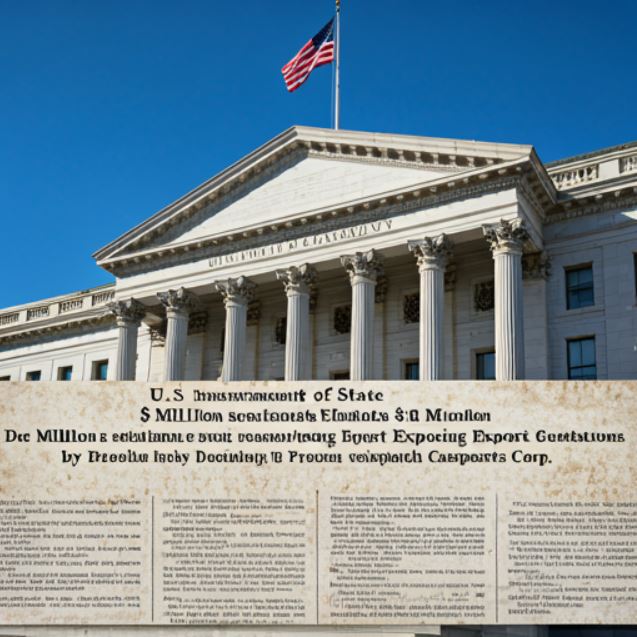Precision Castparts Corp. faces a $3 million fine for violating export laws. The company is required to implement compliance measures and appoint a compliance officer.
 |
| A defense manufacturer has agreed to pay a $3 million fine to resolve allegations of unauthorized exports. The company is also required to implement compliance measures. Symbolic Image |
Washington, D.C., USA – October 8, 2024:
The U.S. Department of State has concluded a significant settlement with Precision Castparts Corp. (PCC) to resolve 24 violations of the Arms Export Control Act (AECA) and International Traffic in Arms Regulations (ITAR). The violations involved the unauthorized export of tools and wax patterns used in the production of casting blades for gas turbine engines.
The settlement, which amounts to $3 million, marks a significant resolution to a complex case involving potential national security implications. Precision Castparts Corp., a leading manufacturer of high-performance metal components, was found to have exported these items to foreign person employees from Bhutan, Burundi, El Salvador, Honduras, Mexico, and Peru.
The unauthorized exports violated the AECA and ITAR, which regulate the export of defense-related items to ensure they do not pose a threat to national security or foreign policy interests. The Department of State's Office of Defense Trade Controls Compliance conducted an extensive investigation into the matter, uncovering the violations.
PCC voluntarily disclosed the violations and cooperated with the Department's review. The company has since implemented measures to strengthen its compliance program, demonstrating a commitment to rectifying the issue and preventing future occurrences.
As part of the settlement, PCC will pay a civil penalty of $3 million. However, $1 million of this amount will be suspended on the condition that it is used for Department-approved remedial compliance measures. These measures will focus on enhancing PCC's compliance program, ensuring that it has robust systems in place to prevent future violations.
Additionally, PCC will be required to appoint an Internal Special Compliance Officer (ISCO) to oversee the Consent Agreement for a minimum of two years. The ISCO will be responsible for monitoring the company's compliance efforts and ensuring that it adheres to the terms of the settlement.
Furthermore, PCC will need to undergo an external audit of its ITAR compliance program. This audit will assess the effectiveness of the company's compliance measures and identify any areas for improvement.
The settlement demonstrates the Department of State's commitment to enforcing U.S. export laws and protecting national security. By holding PCC accountable for its violations, the Department is sending a clear message that unauthorized exports of defense-related items will not be tolerated.
The settlement also highlights the importance of companies in the defense industry maintaining robust compliance programs to prevent violations of the AECA and ITAR. By investing in compliance measures and training employees on export control regulations, companies can mitigate the risk of legal penalties and protect their reputation.